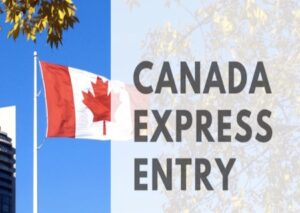Spousal Open Work Permit New Requirements: Everything You Need to Know
If you are planning to apply for a Spousal Open Work Permit (SOWP) in Canada, staying updated on the latest requirements is essential. The Government of Canada periodically updates its immigration policies, and understanding the new requirements for a spousal open work permit will help ensure a smooth application process.
What is a Spousal Open Work Permit?
A Spousal Open Work Permit (SOWP) allows the spouse or common-law partner of a temporary foreign worker or international student to work in Canada for any employer without needing a job offer in advance. It provides greater flexibility and opportunities for families to stay together while earning an income.
New Requirements for Spousal Open Work Permit (2025)
The Canadian government has introduced updated eligibility criteria and documentation requirements for spousal open work permits. Below are the key changes:
Eligibility Criteria Updates
The eligibility criteria vary based on the status of the primary applicant. The latest updates include:
For Spouses of International Students:
The principal applicant (student) must meet one of the following criteria:
- Enrolled in a master’s degree (16+ months) or doctoral degree program at a designated learning institution (DLI).
- Participating in an eligible program or professional degree program such as:
- Doctor of Dental Surgery (DDS, DMD)
- Bachelor of Law or Juris Doctor (LLB, JD, BCL)
- Doctor of Medicine (MD)
- Doctor of Optometry (OD)
- Pharmacy (PharmD, BS, BPharm)
- Doctor of Veterinary Medicine (DVM)
- Bachelor of Science in Nursing (BScN, BSN)
- Bachelor of Nursing Science (BNSc, BN)
- Bachelor of Education (BEd)
- Bachelor of Engineering (BEng, BE, BASc)
Eligible Programs by Province:
- Outside Quebec: Francophone Minority Communities Student Pilot (FMCSP) – From August 26, 2024
- Quebec:
- Nurse Competency Recognition (April 30, 2024)
- Inhalotherapist & Medical Technologist Recognition (January 21, 2025)
- Ontario: Supervised Practice Experience Partnership (January 21, 2025)
- Manitoba: Nurse Re-Entry Program (January 21, 2025)
- British Columbia:
- Internationally Educated Midwives Bridging Program (UBC)
- Canadian Pharmacy Practice Program (UBC)
- Nursing Practice in Canada (Langara College)
Note: Spouses of students in undergraduate programs may not be eligible for an open work permit unless the program is in a high-demand field.
For Spouses of Work Permit Holders:
The principal applicant (foreign worker) must meet the following criteria:
- Valid Work Permit: The primary applicant must hold a valid work permit under specific categories, such as the International Mobility Program (IMP) or the Temporary Foreign Worker Program (TFWP).
- High-Skilled Occupation: The primary applicant must be employed in a high-skilled occupation, including:
- TEER 0 or 1 occupations
- Selected TEER 2 or 3 occupations that are in demand or linked to government priorities. These occupations include roles in sectors such as:
- Natural and applied sciences
- Construction
- Health care
- Natural resources
- Education
- Sports and military sectors
- Remaining Work Permit Duration: The foreign worker must have at least 16 months remaining on their work permit when their spouse applies for the open work permit (OWP).
Additional Considerations:
- Dependent children of foreign workers will no longer be eligible for an open work permit.
- Low-wage temporary foreign workers and their spouses are generally not eligible for an open work permit. However, if the foreign worker is on a pathway to permanent residence (i.e., their PR application is in process), they may be eligible to apply for a Spousal Open Work Permit (SOWP). To qualify, the foreign worker must have a valid work permit for at least 6 months at the time their spouse submits the SOWP application.
Additional Documentation Requirements
Recent updates have also introduced stricter documentation requirements for SOWP applications:
Proof of Relationship: Marriage certificate or common-law relationship proof (such as joint bank accounts, lease agreements, or utility bills).
Proof of Status of the Principal Applicant: A valid study permit or work permit of the spouse.
Proof of Enrollment (for student spouses): Letter of Acceptance, Letter of enrollment from a DLI confirming the student’s program.
Employment Proof (for worker spouses): Recent employment letter, pay stubs, and a job description from the employer.
- Proof of Permanent Residence Application Submission: If applying under the category of family members of individuals on a pathway to permanent residence, applicants must provide proof of the PR application submission. This can include a document such as the Acknowledgment of Receipt (AOR) to confirm that the permanent residence application is in process.
Processing Time and Biometrics Requirement
Processing times for SOWP applications have been revised based on application volume and the applicant’s country of residence.
Most applicants will be required to submit biometrics (fingerprints and photo) as part of the application process.
How to Apply for a Spousal Open Work Permit in 2025
Applying for an SOWP can be done online through Immigration, Refugees and Citizenship Canada (IRCC). Here are the steps:
Check Eligibility: Ensure that you meet the new eligibility criteria.
Gather Required Documents: Collect all necessary documents, including proof of relationship and spouse’s status.
Complete the Online Application: Submit the application via the IRCC website.
Pay the Application Fee: The fee for a spousal open work permit is currently $255 CAD (subject to change).
Attend Biometrics Appointment (if required): Book and attend a biometrics appointment if requested by IRCC.
Wait for Processing: The processing time can vary but usually takes 3 to 6 months.
Common Reasons for SOWP Application Rejection
Some common reasons for refusal include:
Incomplete or missing documents
Principal applicant not meeting eligibility criteria
Lack of proof of genuine relationship
Insufficient financial proof
To avoid delays or refusals, ensure that all documents are accurate and complete before submission.
Final Thoughts
The new requirements for a spousal open work permit in Canada have made eligibility more structured, especially for spouses of students and temporary foreign workers. Staying informed and preparing your application correctly will increase your chances of approval. If you need assistance with your application, consulting a licensed immigration consultant can be beneficial.






















